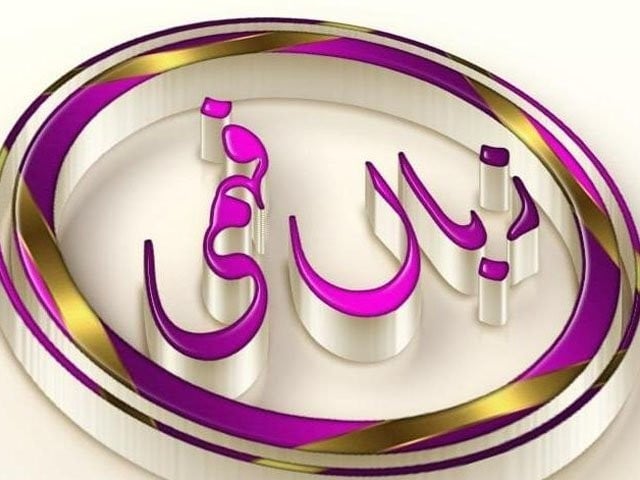Due to our limited study, we are unaware of the unparalleled spread of our great language and the presence of its lovers in other countries and regions, for the information of the people (and others), it is absolutely necessary to say that the research in this chapter Many corners await our attention right now.
Located in the eastern part of the continent of Africa, the paradise country of Mauritius, the name is usually written as “Mauritius” in Urdu, but the local people, who also write literature in Urdu, like to write “Mauritius” because of this. The original pronunciation is closer to what is, however, a ‘non-Urdu’ noun. In view of this fact Khaksar is also writing Mauritius instead of Mauritius.
Although this country consists of multi-lingual and multi-ethnic population, but according to Arif Safi Dehlvi, “Urdu has also become a religious and cultural language of the Muslims here.”
Apart from the Indian region, the rest of Asia, England and Europe, America and adjacent countries, Australia, New Zealand and adjacent countries and regions, (rather long before many countries included in them), Urdu had set foot on this charming land.
Before directly discussing the subject, it is necessary to briefly present the facts of this land:
The deserted island of Mauritius was discovered by Arab Muslims in the 8th century and named DINA AROBI (presumably Dunia), which after settlement was corrupted by the local population to Dina Robin. Later, when the area was mapped by an Italian cartographer, Alberto Calvino, Jabja marked the Arabic names, indicating that Arab Muslims were the first inhabitants.
This land was ruled by the Portuguese from 1507 to 1598, the Dutch from 1638 to 1710 and then the French from 1715 to 1810, after which it was occupied by the British Empire from 1810 to 1968.
By 1833, Britain had regularly enslaved people here, and gradually millions of laborers were brought from India (mainly, initially in the sugarcane fields) whose descendants still live there today. are
Republic of Mauritius [Republic of Mauritius]Go public in French [République de Maurice]It is said that it is attributed to a Moghis Sahib, which is a mixed dialect consisting of local ‘French. [Mauritian Creole or Morisien (formerly Morisyen) (Morisyen: kreol morisien] It is called Repiblik Moris.
The area of this country is 2,040 square kilometers or 790 square miles. Believers of Hinduism, Christianity, Islam and some other religions live here. Ethnically, these people are Indian, Kare Awal, Chinese and French, while the majority (86.5%) speak Kare Awal and others speak Bhojpuri, French, English, Chinese, Tamil and other languages.
(Although these statistics are available on Wikipedia, I don’t trust them, as such statistics in major encyclopedias are usually quite old and conjectural). It is a sign of love for Urdu that during the regime of former Prime Minister Ms. Benazir Bhutto, when the Vice President of Mauritius visited Pakistan, he gave a speech in Urdu, to which our Prime Minister gave a written speech in English.
The origin of the Urdu language in Mauritius came from people who came from India. From 1953, the teaching of Urdu began in schools at the elementary level, at the post-secondary level and then, at the MA level and finally at the Ph.D. As far as creative literature is concerned, its beginning was a bit late.
When Mauritius got independence on March 12, 1968, after the constitution, the government began to focus on the promotion of Eastern languages. (Additionally, this country was declared a formal republic on March 12, 1992). The National Urdu Institute was founded on 18th September 1970. This was the period when activities were started for the promotion of Urdu language and literature on the initiative of Indian celebrities like Azeemul Haq Junaidi and Dr. Athar Parvez.
A new history of Urdu literature began when Inayat Hussain Eidan and Qasim Hira returned home after receiving higher education from India. The then Interim Governor General Sir Abdul Rahman Usman and Prime Minister C. Vu Sagar Ram Ghulam were made Patron-in-Chief, while Sir Abdul Razak Muhammad was Patron. The first president of this institution was Mr. Abdullah Karimji and the honorary secretary was Mr. Ahmad Abdullah Ahmed. An article about this organization’s services is available online:
https://usumru.govmu.org/
The institute in collaboration with Jamia Urdu, Aligarh started Urdu examinations for the grades of “Preliminary”, “Beginner Adib”, “Adib Mahir” and “Adib Kamil”. In this way, there will be great help in the promotion of Urdu language and literature.
Inayat Hussain Eidan founded the first ‘Anjuman-e-Adab Urdu’ of Mauritius and published a literary magazine ‘Jistjoo’ to attract the countrymen towards it. In 1973, when the Urdu Drama Festival started there, it was as if another chapter in the creation of art and literature was opened. Despite being in vogue for such a long period, Urdu started its literary journey in the seventh decade of the 20th century and Mauritius soon became a prominent settlement of the “Urdu world”.
The interesting thing is that even though the Urdu-speaking community is less in Mauritius and their works have also come to the limelight a little less, but despite not being able to speak the language and with limited resources, they engaged in creating literature.
Under the auspices of the Ministry of Arts and Culture of Mauritius, the Urdu Drama Festival is organized every year in which the participants practice acting by presenting pre-staged plays. The name of Rashid Nirwa Razdan is particularly famous among the writers of Yek Babi Khel, who held the post of Arts Officer in the same Ministry. He wrote several plays which were successful and were awarded prizes. .
Four collections of his plays, “Andha Kanwaan” (2000), “Hamari Parjak” (2007), “Ah Ki Goonj” (2014) and “Watan Ka Karda” (2017) have been published.
Other famous playwrights include Farooq Rizal (masterpiece play: ‘Rishta’ and collection: ‘Dhank’), Qasim Heera (set drama ‘Naghama Takbata’), Inayat Hussain Eidan (collection of plays ‘Zinda Gazette’), Tahir Doman (drama: ‘Ehsaas’ and ‘Ab Dilli Dur Nahi’), Dr. Sabir Godad (Drama: ‘Inqlab’ and ‘Injam’), Hanif Kanhai (Drama: ‘Wasit Nama’), Yusuf Sabrati (Collection of Dramas ‘Meri Ghastam’: 2014) ), Abdul Qasim Ali Muhammad (Collection of Fourteen Plays: ‘The Sugarcane Fields’. 2016).
Playwright Farooq Rizal is also known as a humorist. A collection of his nineteen comic essays, ‘Aina’, appeared on Mansa Shahood in 2004, while another collection, ‘Haqiqitan’, was published in 2017. Some of his important works include ‘What is in my name’, ‘Teachers’ teaching’, ‘I also have language in my mouth’, ‘We also had children’, ‘Af! These wives’ are included.
In 2005, Farooq Rizal also received the honor of first place in Mauritian Urdu fiction writing when his collection of fiction ‘Kishmuksh’ was published. His critics wrote that “no one believes that fiction can be written in such a simple language”. His major fictions include ‘Back’, ‘New Blanket’, ‘Fate’ and ‘Death Celebration’.
Other important fiction writers include Muhammad Hanif Kanhai (fiction collection: ‘Etidam’), Inayat Hussain Eidan (collection: ‘Not a small bungalow but a ….’ rare gift’). The special theme of Eidan’s fiction is ‘Time’. He has tried to connect the present with the past and the future.
Here is an excerpt from a paper by Dr. Nazia Jafukhan Sahiba:
All these stories were written between 1970 and 2013 and from each story it can be guessed which era is being mentioned. The author has compared the past and present situation in almost every fiction. In this way the history of Mauritius comes before the reader. He explains how times change and progress even in a small country like Mauritius. The fable ‘Not a small bungalow but a …..’ begins thus:
I cannot believe that our country has progressed so much in such a short period of time. I am here after twenty five years. There were so many shady trees along the paved road of our village under which my grandfather and your grandfather used to sit and talk.
Sometimes four or five friends of both of them would come and all of them would not get up until it was dark. Now look, there is no tree. In their place are new shops and …..(not a small bungalow but a ….)”
Abinaz Jan Ali is the only female fiction writer whose fiction was published in book form. In 2019, his fictional collection ‘Pechwa Khum’ was published. His popular fictions include ‘Burgess Chacha’, ‘Aab Hayat’ and ‘Infidelity’.
Among other efforts, a notable achievement of Dr. Ejazuddin Ahmad Rehmat Ali is the translation of some Hindi legends into Urdu, which came out in book form under the title ‘Legends of Mauritius’.
Inayat Hussain Eidan proved to be a pioneer in the field of novel writing. His novel ‘Apini Zameen’ was published in 2011 and was followed by ‘Yeh Mera Chaman Hai, Mera Chaman’. He is also a cartoonist. His book ‘Leaders’ containing personal sketches was published in Mansa Shahud in 2006.
When it comes to poetry, the soil of Mauritius is very fertile. Prominent Urdu poets here include Dr. Sabargodar, the creator of ‘Lub Sahil’ (1995) and ‘Dard Ka Safar’ (December 2020), Ahmed Qasim Hera, the poet of ‘Narsai’, Saeed Mian Jan, the poet of ‘Saee La Khasal’, all genres of ‘Talash Peeham’. Tahab Azma in the speech, poet of love of the country, Mohammad Tahirduman, poet of ‘Ghamginian’ Abdul Salam Ahmadi (collection of poetry published: 2008. Publisher: Anjuman Forough Urdu) poet of ‘Exam of Love’ Ayub Pir Ali (collection of poetry published: 2008. Publisher: Anjuman Forough Urdu) and creator of ‘Ghazliat Nadan’ Abdul Qasim Ali Muhammad Nadan (Published: 2008. Publisher: Kitabi Duniya, New Delhi). Here is an introductory quote from an article about a poet Muhammad Tahir Duman:
Muhammad Tahir Duman’s poetry collection ‘Talaash Peyham’ is unique in terms of its beautiful print as well as artwork, subject and presentation. It covers hymns, naats, poems and ghazals. A number of Tahir Doman’s poems reflect local color such as ‘Mauritius Landscapes’ and ‘My Village’. Also, in some poems, the color of patriotism is full like ‘Azad Mauritius’, ‘Motherland’, ‘Mauritius Hai Watan Hamara’ etc.
Here are some examples of Mauritian poets:
How is this cry in the desert of Sanat today?
Whose knock on the heart at this time today?
(Ahmed Qasim Hira)
Saeed, look carefully at what you see every day
That it has just taken the color of a flower
(Saeed Mian Jan)
Why was the land of the heart barren?
The cloud of love did not rain
(Abdul Qasim Ali Mohammad Nadan)
Dr. Ijazuddin Rahmat Ali, Dr. Riaz Gokhal, Dr. Asif Ali Muhammad, Dr. Nazia Begum Jafukhan, Dr. Sakina Rasm Ali, Dr. Zainab Juman, Fazil Mangalu, Fayyaz Muhammad Ali, Shaheen Eidu, Dr. Rahmat Ali, Saeed Meijan and Khaliq Baucha. [Khaleck Bauccha] etc. names are prominent among such scholars whose books have not been published, but something has been published in various journals and newspapers. Lately Zakar and Abinazjan Ali have written stories for children.
It is common for Mauritian poets and poets to mix their mother tongue, French and English with Urdu as per the purpose and for this reason they can be considered different from other contemporaries. A clear reflection of the local culture is also reflected. Highly educated morians will stand against other urdu scholars in future.
Among my Facebook and WhatsApp friends are many writers from Mauritius, especially Dr. Nazia Begum Jaffo Sahib who is associated with the Urdu Department of Mahatma Gandhi Training Institute, host of radio programs. , is running an organization ‘Naheed International’ and also organizes and publishes an online literary journal with the same name.
Long ago he included an article by Khaksar in his magazine and now also provided valuable material for this article, while Ms. Abinaz Jan Ali gave me an important article about him. In the past, there was contact with a writer from Mauritius Mr. Farooq Baucha, who played an important role in organizing international literary events in his country, he was also associated with The International Urdu Institute like Inayat Hussain Eidan.
The ‘Urdu Speaking Union’ has also been established by the Government of Mauritius in 2002. Here I want to say one thing openly that the efforts of some scholars who visited Mauritius to preach, including Maulana Ibrahim Khushtarsadiqi (March 8, 1930 to August 15, 2002) and (my respected scholar) Maulana Abdul Waheed Naeemi Noorani, also contributed to the promotion of Urdu. happened
The first-mentioned was the founder of the Sunni Razavi Society International and the preacher and presiding imam of the Jama Masjid of Port Louis (originally pronounced Pooh Loui) in Mauritius and his shrine is also there. He gained fame as a poet, writer, speaker and teacher. .
He was the disciple of the “Qutb-i-Madinah” Sheikh Ziauddin Ahmad Siddiqui Qadri, (Khalifa Ala Hazrat Ahmad Raza Khan Barelvi) and Muhaddith Azam Allama Sardar Ahmad Qadri (may Allah have mercy on him). Hazrat Waheed Naimi is a preacher and imam in a mosque in Karachi and has also given speeches on Mauritius Radio and Television in the past.
(function(d, s, id){
var js, fjs = d.getElementsByTagName(s)[0];
if (d.getElementById(id)) {return;}
js = d.createElement(s); js.id = id;
js.src = “//connect.facebook.net/en_US/sdk.js#xfbml=1&version=v2.3&appId=770767426360150”;
fjs.parentNode.insertBefore(js, fjs);
}(document, ‘script’, ‘facebook-jssdk’));
(function(d, s, id) {
var js, fjs = d.getElementsByTagName(s)[0];
if (d.getElementById(id)) return;
js = d.createElement(s); js.id = id;
js.src = “//connect.facebook.net/en_GB/sdk.js#xfbml=1&version=v2.7”;
fjs.parentNode.insertBefore(js, fjs);
}(document, ‘script’, ‘facebook-jssdk’));



